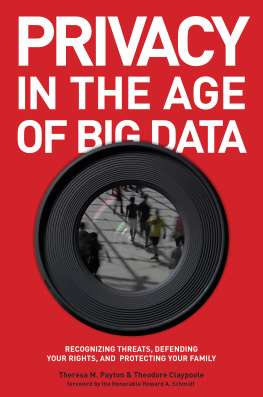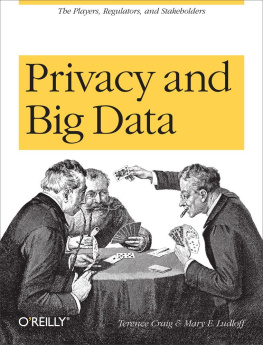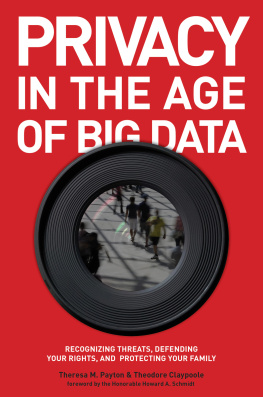We would not have been able to write this book without the help of many people.
We would like to thank our spouses for going beyond the call, putting up with us genteelly (if there is such a thing) yelling at each other, proofing, and sharing ideas. It goes without saying that startups have long grueling hours and when coupled with our writing weekends, we did not have much time for anything else. Our spouses bore the brunt of most of this and we are eternally grateful that we have chosen so well!
We would also like to thank Mike Loukides, Meghan Blanchette, and the entire O'Reilly crew for the opportunity and support. We especially appreciated the gentle prodding when we were a bit late with drafts which helped us to stay the course.
Our thanks to Natalie Fonseca, the co-founder and executive producer of Privacy Identity Innovation (PII). Her excellent conferences taught us much we didn't know about privacy and her unstinting support of the book has our heartfelt gratitude.
A number of friends and colleagues reviewed drafts of this book. We thank them all for their insights and comments. Without a doubt, they all helped to make the book better.
Enough said. This book is soup! Time for some cocktails on the deck!
In Terences Own Words...
To my Mother, Father, and my beautiful wife: without you there, there is no me. To my adopted Russian Crew, with a special shout out to Slavik and Sasha; to Dr. B, Sujata, and Elan, every time I hear how success ruins people, I think how you guys are the exception to the rule, thanks for having my back; to my Texas and North Carolina family (you guys know who you are and I am running out of room); to all the employees, past and present, that have helped me build PatternBuilders and last, but certainly not least, to my co-author and dear friend, Mary, thanks for one of the most rewarding collaborations of my career.
Its Marys Turn Now...
My thanks to my husband and sisters who picked up all of the slack and kept me laughing throughout this labor of privacy (wait, I meant love!). To my dearest cousin, thanks for reminding me why I should periodically take grammar refresher courses and for having such a keen eye (and yes, I should have given you more time!). To all my friends and family, thanks for putting up with my endless questions on all things related to privacy to gain a better understanding of different viewpoints. Finally, to my co-author and equally (see above) dear friend, Terence: I could not have picked a better person to work with to write a book about a topic that is so nuanced and complicated. We had our contentious moments but we never lost sight of the big picture and that made, I believe, for a much better book!
Chapter 1. The Perfect Storm
If, like us, you spent the last 20 years or so working in the high tech industry, youve had a birds-eye view of the evolving data privacy debate. No matter where you fall on the privacy continuumfrom a cavalier approach to how your data is being collected and used to a more cynical and, some might argue, paranoid view of the endless ways your information could be hijackedit is safe to say that the stakes have never been higher.
There is a perfect storm brewing; a storm fueled by innovations that have altered how we talk and communicate with each other. Who could have predicted 20 years ago that the Internet would have an all-encompassing effect on our lives? Outside of sleeping, we are connected to the Web 24/7, using our laptops, phones, or iPads to check our email, read our favorite blogs, look for restaurants and jobs, read our friends Facebook walls, buy books, transfer money, get directions, tweet and foursquare our locations, and organize protests against dictatorships from anywhere in the world. Welcome to the digital age.
Digital technology has created and nurtured a new world order where much that was impossible is now possible. We may not have personal jet packs or flying cars, but we do have video phones and combat drones. We may not yet inhabit the world George Orwell predicted in his dystopian novel, 1984 , a world in which there was no right to privacy and the government used surveillance and misinformation to control its citizens; however, our government has certainly used our personal information to its advantage, resulting in far more knowledge about us than even Orwell could have imagined.


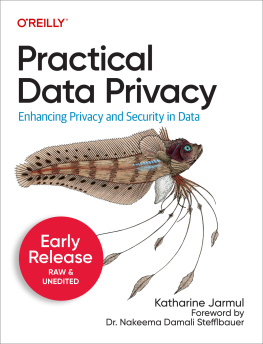
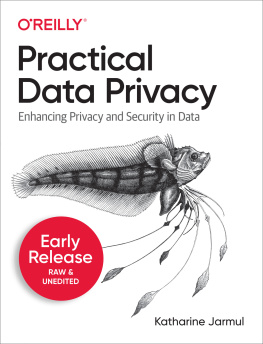
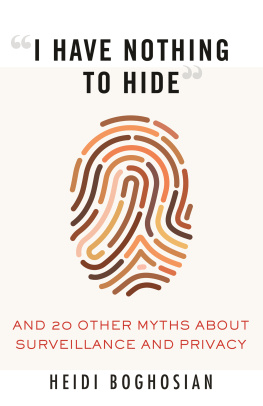
![Terence Craig and Mary E. Ludloff - Privacy and big data: [the players, regulators, and stakeholders]](/uploads/posts/book/229294/thumbs/terence-craig-and-mary-e-ludloff-privacy-and-big.jpg)
